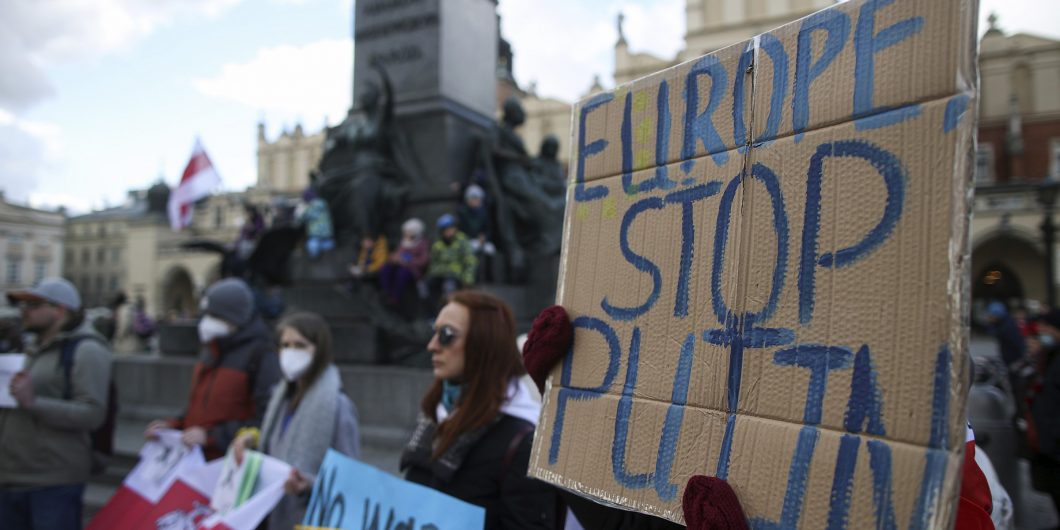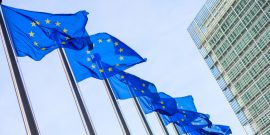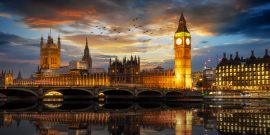A recent plea for greater appreciation of European identity rings hollow.
Is the West Now United?
The suspicion that the west is too decadent—too attached to its comforts—to face down the challenges of the contemporary world was very widespread before the Russian invasion of Ukraine. Indeed, this view was likely shared by Vladimir Putin, and may have been one of the reasons that he thought that he could order the invasion of Ukraine with impunity.
Not only the strength of the Ukrainian resistance, but also the apparent strength of the western response, might have surprised him. The west had shown itself feeble and impotent before, and as psychiatrists put it, the best predictor of future behaviour is past behaviour. The west might huff and puff, but in the last analysis, do nothing, in large part because there was nothing it could do—at least without imposing the kind of sacrifices that democratic politicians, with their eyes forever focused on the polls, cannot impose except under the direst and most immediate threat, and perhaps not even then.
Behold! The invasion seems to have produced a kind of gestalt switch in Europe, especially in Germany, which has now awoken from its (understandable) pacifist dreams and is even beginning to reconsider Mutti’s (Merkel’s) atrocious legacy. It turns out not to be true that, at heart, all people desire only peace and will respond reasonably if you speak reason to them. The invasion of Ukraine has been, among other things, a lesson in the possibilities of human nature. The surprising thing, perhaps, is that, in Europe of all places, it is a lesson that had to be taught.
The apparently unanimous condemnation of the invasion, followed as it was by reluctant but apparently severe economic sanctions, and a willingness of several western countries to supply Ukraine with defensive weaponry, suggested to some commentators that a sleeping giant had awoken at last. Germany suddenly announced that it would, de facto, soon transform itself into the largest military power in western Europe, at least as measured by expenditure on its armed forces (not, admittedly, a very good metric of actual military power). This, of course, was a complete reversal of its policy since the Second World War, approved by practically the whole German population, and no one wondered in public whether its eastern and western neighbours experienced a certain frisson at the news.
A combination of financial and military power within the European Union might not please everyone. Though the threat or prospect of a recrudescence of Nazism in Germany is absolutely non-existent, many (rightly or wrongly) still descry in the German character an authoritarianism, a self-belief of the Germans that they have special insight into how others should lead their lives. And the fact that the Germans have turned liberal, in the American sense of the word, offers little reassurance.
Be that as it may, the Russian invasion of Ukraine purportedly acted on Europe (and the United States) much as the electric current acted on the corpse of Frankenstein’s monster: it brought it back to life. Suddenly, the cobbled-together body of the west began to act as a real organism, and a powerful one at that. There is nothing like an enemy at the gates to give a bit of backbone to a weakling. The speeches of the Ukrainian president, after all, moved everyone in a way that very few speeches by contemporary politicians move anyone. The west had revealed itself to be not so feeble as supposed.
Fractiousness is, of course, a consequence of freedom, which entails the pursuit of self-interest. Putin has played on this self-interest as Dr. Schweitzer played Bach on the organ.
I hope that I shall not be regarded as cynical if I say that, if I were Vladimir Putin, I would remain unimpressed by the west’s response. He is, after all, no sentimentalist; he has spent his life devoted to an evil cause which he mistook for good, a cause which never counted the cost of human life, even by its millions. A thorough training in dialectics enables him to reconcile, without cynicism, the most flagrant kleptocracy with the transcendent national cause. He had been acquainted with brutality and ruthlessness all his life, and it has given him a certain type of realism. While western politicians have appealed to the best in human nature, an appeal that, however insincere or hypocritical, places constraints upon them, Putin has always exploited, so far successfully (if one measures success by survival in power), the worst in it.
The west’s unity wallpapers over cracks, fissures, even yawning gulfs. For a time, the United States continued to import (and pay for) Russian oil, without having the slightest real need to do so, other than that of placating an ideological lobby. No doubt political triangulation has caused its leaders to change their minds. The Germans had at least the excuse that, for the moment, they needed Russian natural gas, if they were to keep the factories going and the homes heated. But when 100,000 Germans marched through Berlin, saying that they didn’t mind cold showers, how Mr. Putin must have laughed! A week of cold showers would come to them as…well, a cold shower, and they will demand hot water from their government.
Le Figaro tells me that the French president has already met with business leaders to ask them not to quit Russia precipitately, and to plan for the après-Ukraine, as it were. In short, after the flattening and occupation of Ukraine, it will be business as usual, with the usual competition for business.
In Britain, many oligarchs, all of whom are by definition close to Putin and his regime, have not been quickly sanctioned, although their links to Putin must by now (indeed, long ago) be known to intelligence services. This reluctance, hesitancy, or resistance, call it what you will, is because London’s reputation as banker to practically every large-scale criminal or kleptocrat in the world would be severely damaged by sequestration or expropriation. As one oligarch was heard plaintively to remark on learning that sanctions might one day apply, “I thought private property was supposed to be sacred in the west”—sacred, that is, no matter how come by. And since Britain’s entire economy is heavily dependent on its banking sector, it has much to lose by financial sanctions.
Fractiousness is, of course, a consequence of freedom, which entails the pursuit of self-interest. Putin has played on this self-interest as Dr. Schweitzer played Bach on the organ. He has contrapuntally cajoled, threatened, divided, bribed, and tested the resolve of the west. Has he broken his own spell this time? It is too early to tell, but the auguries are not wholly good.



